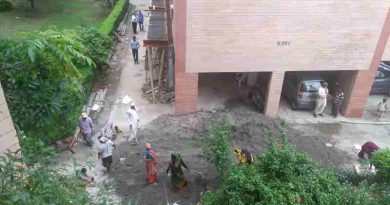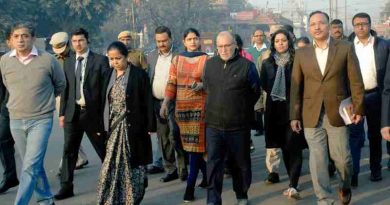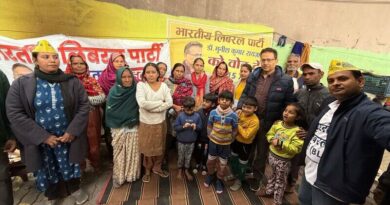Land Pooling Policy Changed in Delhi; DDA to Act as Facilitator

Land pooling in Delhi, expected to meet the rising demand for residential and other needs besides stimulating economic growth, is now simplified for speedy execution, a government statement claimed today.
According to the statement, the Delhi Development Authority (DDA) will now act more as a facilitator and planner as against the role initially envisaged for it as a part of simplification of execution of land pooling policy.
The Minister of Housing & Urban Affairs (HUA) Hardeep Singh Puri and Lt. Governor (LG) of Delhi Anil Baijal met in Nirman Bhawan and discussed various aspects of the Land Pooling Policy and decided to make some changes in the policy decided earlier. Duga Shanker Mishra, Secretary (HUA) and Vice-Chairman of DDA also participated in the discussion.
[ FAR Construction: Dwarka Residents Blame DDA for Corrupt Practices ]
Originally, land pooled under the policy was to be transferred to DDA which was to act as the Developer Entity (DE) and undertake further sectoral planning and development of infrastructure in the pooled land. The Minister and LG today decided to do away with this requirement and land title continues to be with the original land owners.
DDA was asked to immediately initiate spatial and services planning for the five zones covered under Land Pooling Policy so that the policy could be given immediate effect after finalization of regulations under the policy.
[ Poisonous Particles + Noise Nuisance = Death for Delhi ]
While both the Minister and LG expressed concern over delay in implementing Land Pooling Policy, Puri thanked Baijal for his initiative in having 89 villages declared as urban areas under the Delhi Municipal Act, 1957 and 95 villages as Development Areas, as required for the implementation of land pooling.
DDA was directed to formulate necessary regulations under the policy in accordance with the changes in a month’s time. DDA was also asked to ensure single-window clearance mechanism for according necessary approvals for speedy implementation.
[ Labour Exploitation Case Filed Against MC of DPS Housing Society Delhi ]
Land Pooling Policy covers the greenfield areas in five zones: J, K-1, L, N and P-II coming under the Master Plan of Delhi-2021. To incentivize dense development for effective utilization of scarce land resource in the national capital, the policy permits enhanced FAR (floor area ratio) of 400 as against the present 150. To promote affordable housing, an additional FAR of 15% is also allowed.
About 22,000 hectares of land is expected to be pooled which could meet the needs of about 95 lakh people. Government believes that land pooling would catalyse economic, social, and civic development of the national capital besides triggering substantial investments and employment generation.
[ Can Government Check Corruption in Delhi Housing Societies? ]
Under the Land Pooling Policy, 60% of pooled land would be returned to land owners after infrastructure development, if the pooled land is 20 hectares and above and 48% if the land pooled is between 2 and 20 hectares.
Of the 60% of returned land, 53% will be for residential purpose, 5% for city level commercial use and 2% for public and semi-public use. In the other case, the same would be 43%, 3%, and 2% respectively.
Affordable houses for Economically Weaker Sections to be built under the policy shall be of the size of 32-40 sq.mtres. Half of this housing stock shall be retained by the Developer Entity to house Community Service People working for the residents / owners of the Group Housing.
These houses will be built at the site or at premises contiguous to the site allotted. The other half of affordable houses shall be sold to DDA at the base cost of Rs. 2,000 per sq.ft for further sale to beneficiaries.
Photo courtesy: Press Information Bureau





